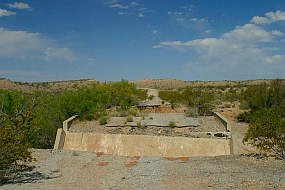As I write this, we’re entering another holiday season. No time of the year is more intimidating for people who must deal with difficult family members. And no family member is more difficult than the one who once had a vibrant faith but has since turned away from God. For some, it’s even harder because it’s not the uncle they see once a year but a child, a spouse, or a parent. The holidays only deepen the sadness over that person’s ever-present lack of faith.
The Bible gives us a well-known story of a loved one who turned away from God:
And [Jesus] said, “There was a man who had two sons. And the younger of them said to his father, ‘Father, give me the share of property that is coming to me.’ And he divided his property between them. Not many days later, the younger son gathered all he had and took a journey into a far country, and there he squandered his property in reckless living. And when he had spent everything, a severe famine arose in that country, and he began to be in need. So he went and hired himself out to one of the citizens of that country, who sent him into his fields to feed pigs. And he was longing to be fed with the pods that the pigs ate, and no one gave him anything. “But when he came to himself, he said, ‘How many of my father’s hired servants have more than enough bread, but I perish here with hunger! I will arise and go to my father, and I will say to him, “Father, I have sinned against heaven and before you. I am no longer worthy to be called your son. Treat me as one of your hired servants.”‘ And he arose and came to his father. But while he was still a long way off, his father saw him and felt compassion, and ran and embraced him and kissed him. And the son said to him, ‘Father, I have sinned against heaven and before you. I am no longer worthy to be called your son.’ But the father said to his servants, ‘Bring quickly the best robe, and put it on him, and put a ring on his hand, and shoes on his feet. And bring the fattened calf and kill it, and let us eat and celebrate. For this my son was dead, and is alive again; he was lost, and is found.’ And they began to celebrate. “Now his older son was in the field, and as he came and drew near to the house, he heard music and dancing. And he called one of the servants and asked what these things meant. And he said to him, ‘Your brother has come, and your father has killed the fattened calf, because he has received him back safe and sound.’ But he was angry and refused to go in. His father came out and entreated him, but he answered his father, ‘Look, these many years I have served you, and I never disobeyed your command, yet you never gave me a young goat, that I might celebrate with my friends. But when this son of yours came, who has devoured your property with prostitutes, you killed the fattened calf for him!’ And he said to him, ‘Son, you are always with me, and all that is mine is yours. It was fitting to celebrate and be glad, for this your brother was dead, and is alive; he was lost, and is found.'”
—Luke 15:11-32 ESV
What can you as a believer in Jesus do? I don’t claim to be an expert on this issue, but I will offer the following.
1. Understand that turning away from God is turning to self
The “oldest lie in the book”:
Now the serpent was more crafty than any other beast of the field that the LORD God had made. He said to the woman, “Did God actually say, ‘You shall not eat of any tree in the garden’?” And the woman said to the serpent, “We may eat of the fruit of the trees in the garden, but God said, ‘You shall not eat of the fruit of the tree that is in the midst of the garden, neither shall you touch it, lest you die.'” But the serpent said to the woman, “You will not surely die. For God knows that when you eat of it your eyes will be opened, and you will be like God, knowing good and evil.”
—Genesis 3:1-5 ESV
Back in my youth, people who turned away from a Christian view of God often turned to other faiths. Today, in contrast, my experience is that most people who reject Jesus don’t go elsewhere. They instead reject all belief.
Or this is what they claim. Fact is, though, the “reject all belief” option doesn’t reject all belief. It instead accepts a belief that I can be my own god. Sound familiar? If anything, it’s the ultimate in self-centered thinking. When someone we love turns away from God, it is an act of extreme selfishness, and we must understand it as such.
2. Understand that turning away from God is a sin
 Romans 14:23 makes it clear: “For whatever does not proceed from faith is sin.” Don’t candy-coat another’s walking away or call it by some romanticized nomenclature such as “going on a quest” or “finding herself.” This is a genuine battle, and it should never be excused or downplayed. Faithlessness is a sin.
Romans 14:23 makes it clear: “For whatever does not proceed from faith is sin.” Don’t candy-coat another’s walking away or call it by some romanticized nomenclature such as “going on a quest” or “finding herself.” This is a genuine battle, and it should never be excused or downplayed. Faithlessness is a sin.
3. Understand that you are likely NOT the one who will restore that lost person
As Americans, we want to fix problems. Something in our national psyche makes it impossible to sit still while a problem exists. We demand change. And if someone else won’t make change happen, then you and I will.
Don’t go there. In the story of the prodigal son, the father understood that whatever change would come over his lost child, he would not be the one responsible for it. Let God work in His timing in the life of a prodigal. Most likely, God will bring awareness, as was the case in the prodigal son.
4. Pray for that lost person
My advice for prayer is to pray that God would…
…break the power of sin in the prodigal’s life.
…run that prodigal to the end of his or her means.
…show the prodigal that he or she is incapable of assuming the role of God.
…show that prodigal that God alone fulfills.
…bring that prodigal back “home.”
5. Never stop praying for that lost person
Pray always. Never give up. Never, ever give up. The Bible does not say explicitly, but I believe that the father of the prodigal son never stopped praying for him. The father’s response to the son is exactly the kind one would expect from someone who never gave up on prayer.
6. Never stop showing lovingkindness to that lost person
Obviously, we love this person if we care enough to worry about his condition. But too often we resort to “tough love” when we should instead display lovingkindness. Always respond to the lost person with lovingkindness. You will be tested in this perpetually. Be kind, and never think that harshness will triumph. Sometimes, you may have to speak a difficult truth. Do so only when guided by God and not by your own desire to change the person. Again, you are likely NOT the change agent in that prodigal’s life. Instead of trying to be the hammer, be the place of safety.
7. Never stop trusting God
I cannot add to this:
This God—his way is perfect; the word of the LORD proves true; he is a shield for all those who take refuge in him.
—Psalms 18:30 ESV
I don’t believe there is a believer in Jesus in this big country who lacks for a family prodigal. We are all in this together. If you know someone who is distraught from watching a loved one go astray, be there for that fellow believer. Perhaps you can pray for each other’s prodigals.
Never stop praying. And never, ever give up hope.

 Along with Arthur, most folks had let the bridge slip into the Sea of Forget. Seems the bridge suffered a bout of amnesia, too, because the sudden application of a semi filled with ball bearings across its surface made the bridge forget its own sole purpose for being, and the whole thing collapsed into the gorge.
Along with Arthur, most folks had let the bridge slip into the Sea of Forget. Seems the bridge suffered a bout of amnesia, too, because the sudden application of a semi filled with ball bearings across its surface made the bridge forget its own sole purpose for being, and the whole thing collapsed into the gorge.